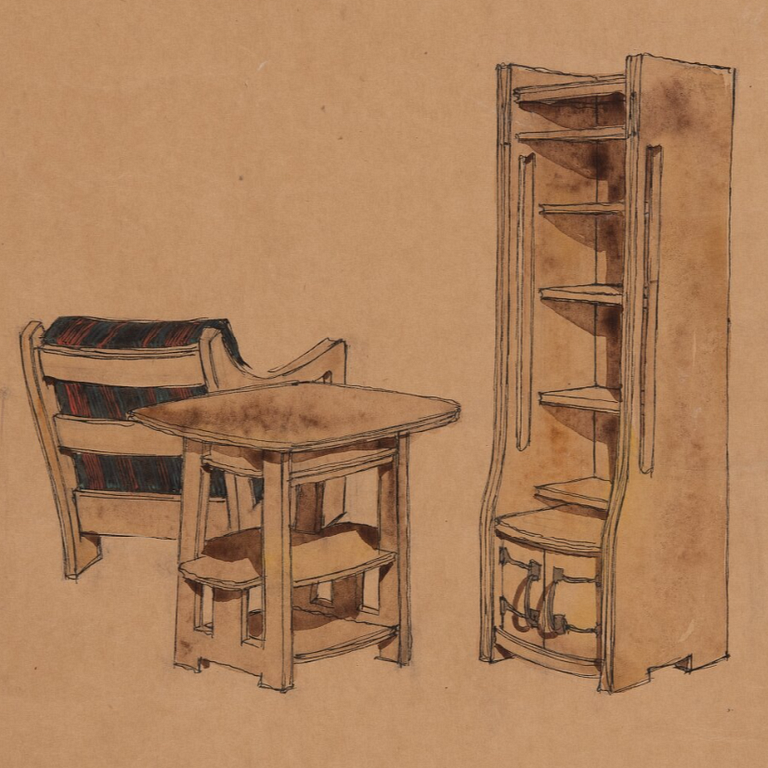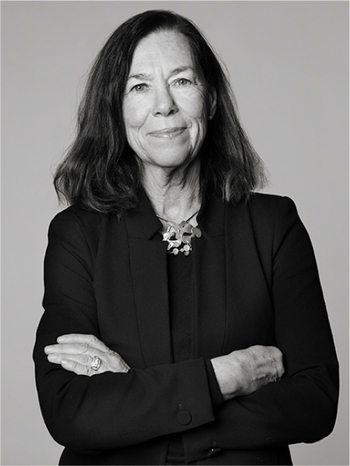Carl Westman
a stained pine bookshelf, Sweden, ca 1910.
Pierced curved side, five fixed shelves, lower part with shelving behind double doors, iron fittings, probably executed by Petter Andersson (1857-1936) "Petter på Myra". 65 x 37 cm, height 175 cm.
Wear, the back with dry crack, key missing, lock incomplete.
Provenance
The present set of furniture designed by Carl Westman was probably ordered directly by the son of the entrepreneur Erik Lundberg for the interior of his office in the newly erected villa from 1912 on the island of Lilla Ekholmen near Vaxholm in the Stockholm archipelago.
Literature
Drawings for several of the pieces of furniture included in this suite are in the collections of the Nationalmuseum, Stockholm (Inv. no. NMH 322/1936).
Gunilla Lundahl, "Karaktär och känsla -Ett sekel med Svensk Hemslöjd" (Character and Feeling A Century with Swedish Handicraft), Raster Förlag 2001, see image p. 87 from the Swedish Handicraft exhibition in 1912, showcasing "Suite C" - a gentleman's room (however incorrectly attributed to Lars Israel Wahlman).
Designer
Carl Westman was a Swedish architect and interior designer. Westman started his own architectural practice in 1897 and during the first years he designed private villas and furniture inspired by the design language of the Arts and Crafts movement. Westman's largest and most famous work is Stockholm's Town Hall (1911–15). He also designed the Röhsska museum building in Gothenburg (1910–1914). Westman was an early adopter of the National Romantic Style, but turned later to the neo-classical style of the 1920s.
Read more












































